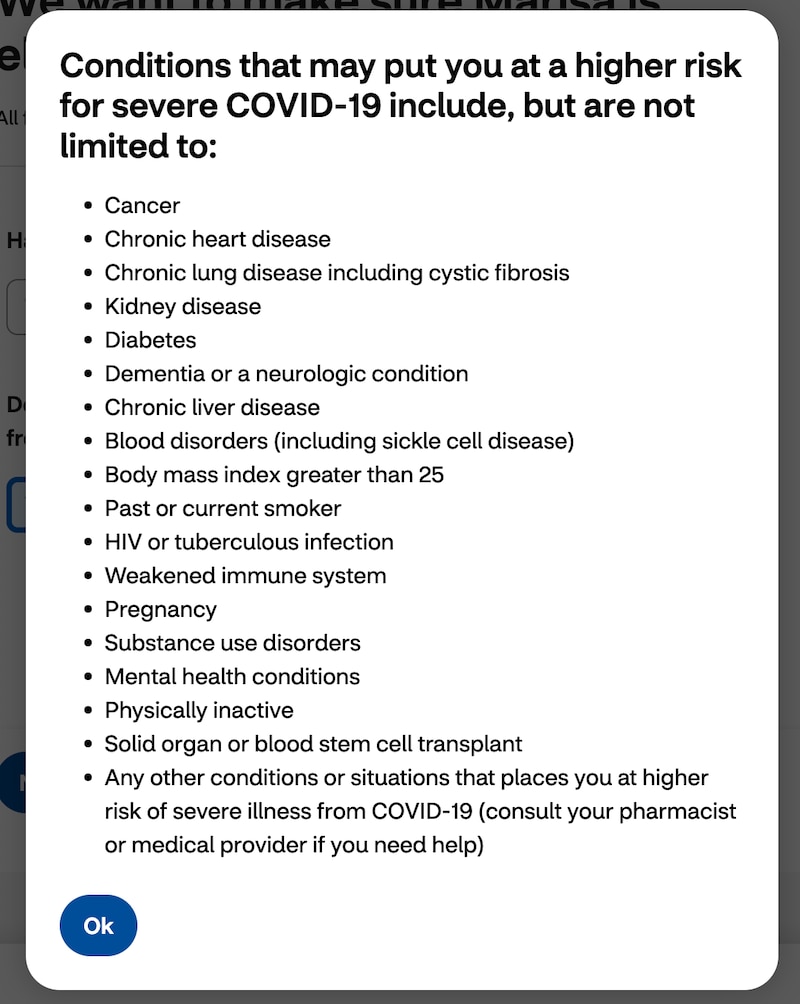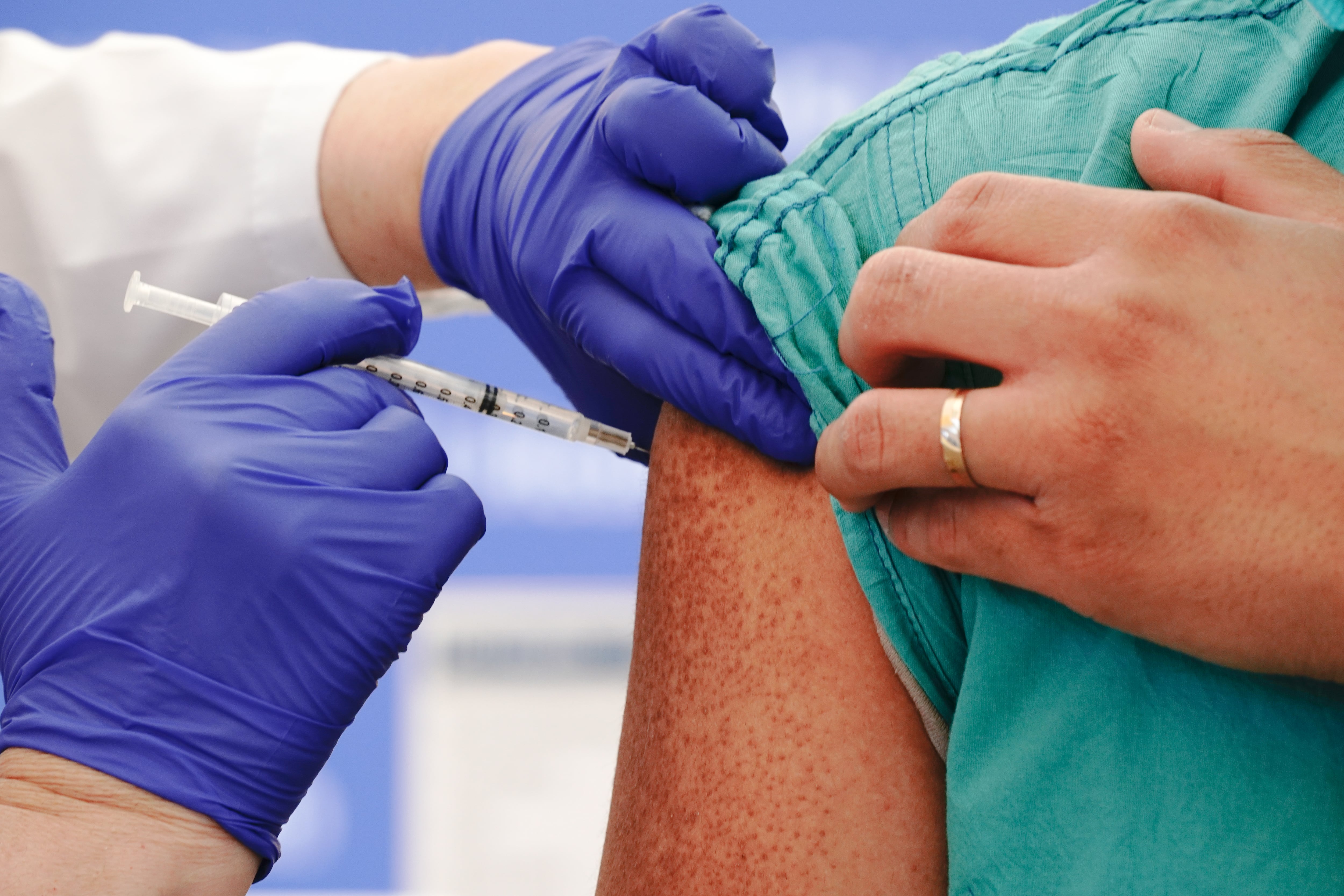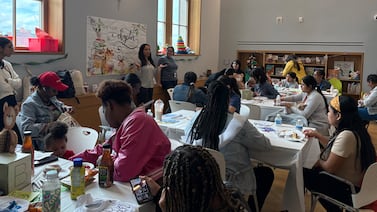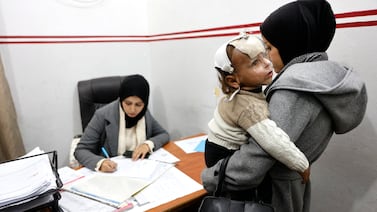This article originally appeared at Your Local Epidemiologist New York. Sign up for the YLE NY newsletter here. Public health, explained: Sign up to receive Healthbeat’s free New York City newsletter here.
Fall is right around the corner, and so are respiratory viruses. Each fall and winter, the big three viruses (Covid-19, flu, and RSV) cause hundreds of thousands of hospitalizations in the United States. The good news is that we have vaccines for all three that help prevent against severe disease.

For the flu and RSV, vaccines are business as usual. Eligibility is clear, and you can show up to most pharmacies or doctors’ offices to get vaccinated. (Check out YLE National’s fall vaccine guide to help determine which vaccines you or your child should get.)
But Covid vaccines are a different story this year. Chaotic government processes and upheaval have left Covid vaccine recommendations in limbo, especially in New York. This is a rapidly evolving situation, and while there’s still a good amount we don’t know, we’re here to help you stay grounded. We’ll share information as it comes in, and break down what it means for you as the respiratory virus season begins.
What changed last week regarding Covid-19 vaccines?
On Aug. 27, the Food and Drug Administration approved updated Covid-19 vaccines from Pfizer, Moderna, and Novavax but with limited eligibility. Specifically, they were approved for:
- Adults 65 and older, and
- Individuals under 65 with at least one high-risk health condition, listed here:

The FDA also revoked the Emergency Use Authorization for Pfizer’s vaccine in children under 5. This leaves only Moderna’s vaccine for children 6 months and older, but only for those who have an underlying condition or who see a doctor.
Why is this causing confusion?
It feels murky because we’re in a limbo period. While the FDA has approved the new vaccines, the Advisory Committee on Immunization Practices has not yet issued recommendations, and the Centers for Disease Control and Prevention hasn’t updated its guidance. ACIP and CDC won’t make changes until after the next ACIP meeting, which is scheduled for Sept. 18-19. Many states, including New York, require that the FDA and the CDC/ACIP approve vaccines before pharmacists are permitted to administer them.
This means that even though the updated Covid vaccines are FDA approved, not all pharmacies can actually offer them yet. It depends on each state’s individual regulations and the written protocols individual pharmacy chains have. In practice, this means that many patients who want Covid vaccines need to see their doctor or get a prescription to bring to a pharmacy. This creates barriers to vaccine access — in 2021, 80% of New Yorkers got their vaccines directly from a pharmacy. Nationally, it’s about 90%.
What’s the situation in New York specifically?
Covid-19 vaccine access via pharmacies depends on which pharmacy you go to:
- Walgreens/Duane Reade: If you are over 65 or have an underlying condition (determined by self-attestation on the scheduling portal) you can make an appointment online for a vaccine at a Walgreens or Duane Reade in New York. But you need to have a prescription from a doctor and bring it to the appointment.
- CVS: Not currently offering Covid vaccines to anyone in New York. CVS is being more conservative than Walgreens, likely because of how the pharmacy chain has written their protocols, but this isn’t totally clear. Until ACIP/CDC makes official recommendations, or New York changes its recommendations, I’m guessing Covid vaccines will stay on hold at CVS. However, you can make an appointment at CVS pharmacies in New Jersey or Connecticut if you are over 65 or have one of the high-risk conditions. It appears that some Minute Clinics in New York may be offering vaccines, but it’s not consistent.
There hasn’t been any formal guidance yet from the New York State Department of Health or the NYC Department of Health and Mental Hygiene. There have been reports that New York state and New York City are considering issuing their own vaccine recommendations, but no official announcements have been made.
What is the state doing about this?
New York and most other New England states recently met to discuss forming a regional health coalition to coordinate health guidance in response to instability at the CDC and ACIP. They discussed what to do when the CDC’s vaccine recommendations differ from the scientific consensus and whether New England states should follow the recommendations of professional medical societies instead. Organizations like the American Academy of Pediatrics and the American College of Obstetricians and Gynecologists have called for broader access to vaccines for children and pregnant individuals, which contradicts the current FDA restrictions.
But the hard truth is that New York should have seen this coming. Increasing instability in federal health has been ongoing for months and has widened cracks in our vaccine systems. New York state and city health departments have yet to issue local vaccine guidance or contingency plans. We need our local health leaders to step up and provide guidance in a way that the CDC and ACIP can’t right now. Without it, the burden of understanding and navigating the complex vaccine landscape falls on the individual, which is not something we should have to do alone.
What should New Yorkers do right now?
- If you are over 65 or have a high-risk condition, you can make an appointment for a Covid shot at Walgreens/Duane Reade, but you need to have a prescription from a doctor. The closest CVS pharmacies currently giving Covid vaccines are in New Jersey or Connecticut.
- If you have a high-risk condition, call your primary care provider to ask if they can vaccinate you or give you a prescription, and if they have the vaccine in stock. If you’re not in a high-risk group, it could still be worth checking in with your doctor. But you can also wait: More clarity is expected in the coming weeks as guidance and state policies catch up.
- Stay tuned for more information from YLE following the upcoming ACIP meeting in mid-September. If they recommend the vaccines and CDC signs on, then we can expect more pharmacies to start vaccinating those who are eligible.
- For those who can’t get their Covid vaccine right now, it’s still a good idea to get your flu shot, and pay attention to your health. If you are feeling ill, avoid social gatherings, wear a mask around others, and get lots of rest.
What else to know this week: Legionnaires’ updates
The Legionnaires’ outbreak in Central Harlem has officially ended. Over the course of the outbreak there were 114 confirmed cases, 90 hospitalizations, and seven deaths.
Final lab results identified the source: two city-owned cooling towers, including Harlem Hospital. Investigators confirmed this by matching the genetic fingerprint of the Legionella bacteria found in patients samples to those collected from the cooling towers.
In response to the outbreak, New York City has proposed new policies that would require building owners to test for Legionella every 30 days instead of 90, and increase the number of Health Department employees who conduct inspections and respond to outbreaks. I’ll be watching to see if these policies are implemented.
The city is also investigating a new, unrelated cluster of Legionnaires’ at an apartment complex in the Bronx. So far, four cases have been identified over the past several months. Unlike the Central Harlem outbreak, this cluster appears to be linked to the building’s internal plumbing, not cooling towers. This usually means that the risk of widespread transmission is lower.
Under city laws, the building owners are now required to evaluate the water system, test for Legionella bacteria, and take steps to control it to prevent future infections.
Bottom line
Vaccines remain the best option to prevent severe respiratory disease this season. Given the confusion surrounding Covid vaccine eligibility and availability, it’s best to consult your doctor about getting a shot.
Love,
Your NY Epi
Dr. Marisa Donnelly, PhD, is an epidemiologist, science communicator, and public health advocate. She specializes in infectious diseases, outbreak response, and emerging health threats. She has led multiple outbreak investigations at the California Department of Public Health and served as an Epidemic Intelligence Service Officer at the Centers for Disease Control and Prevention. Donnelly is also an epidemiologist at Biobot Analytics, where she works at the forefront of wastewater-based disease surveillance.







